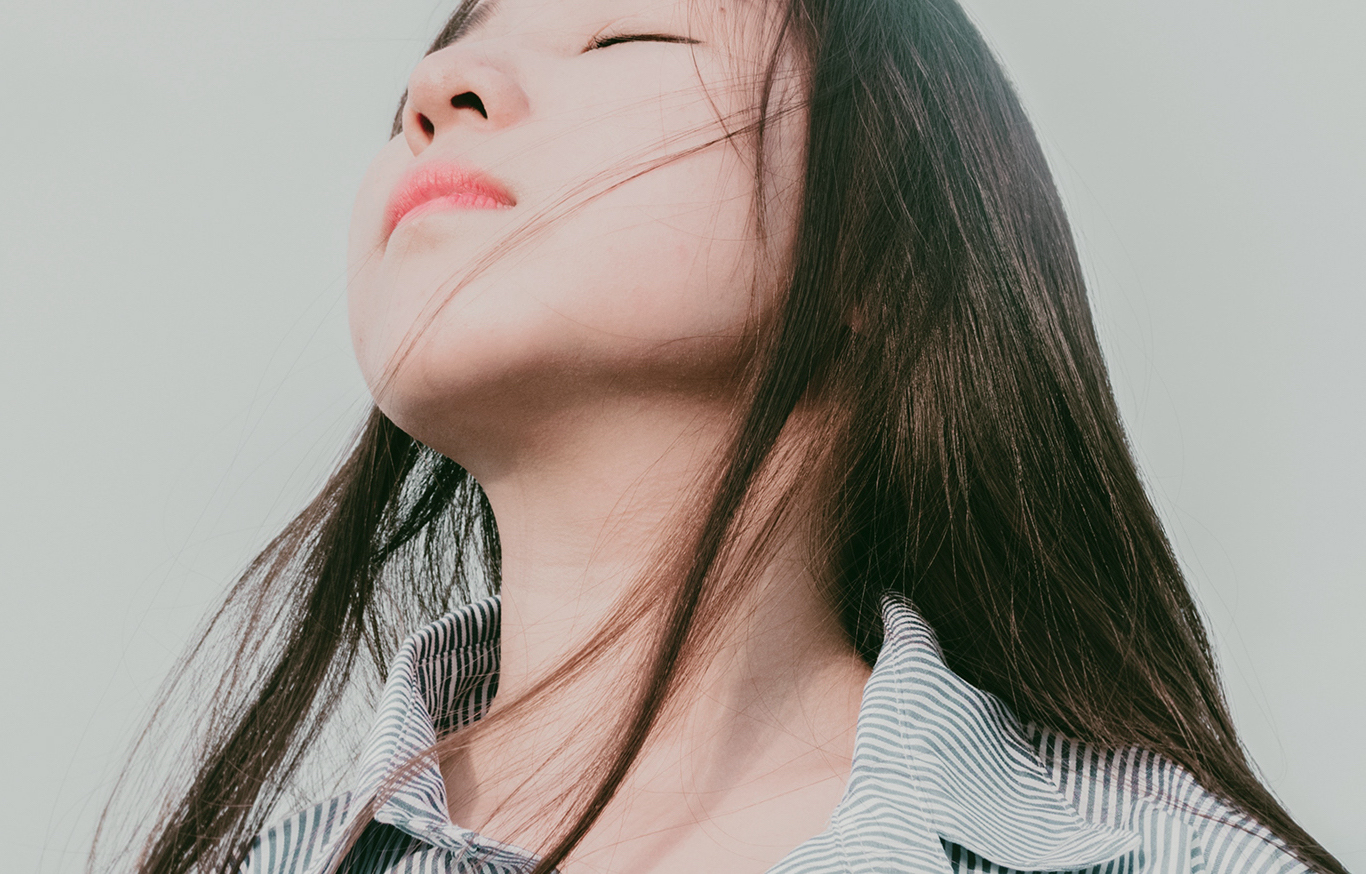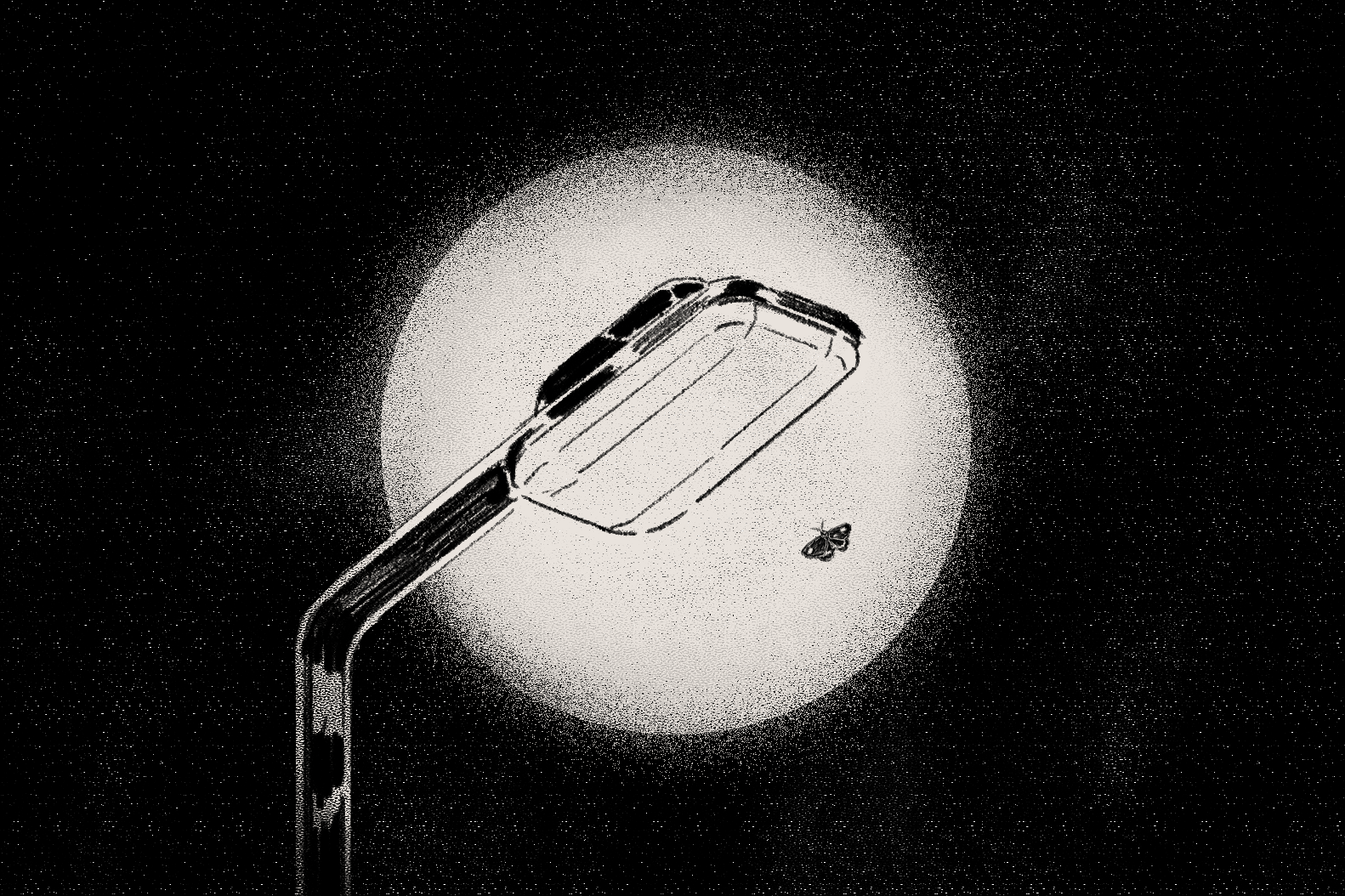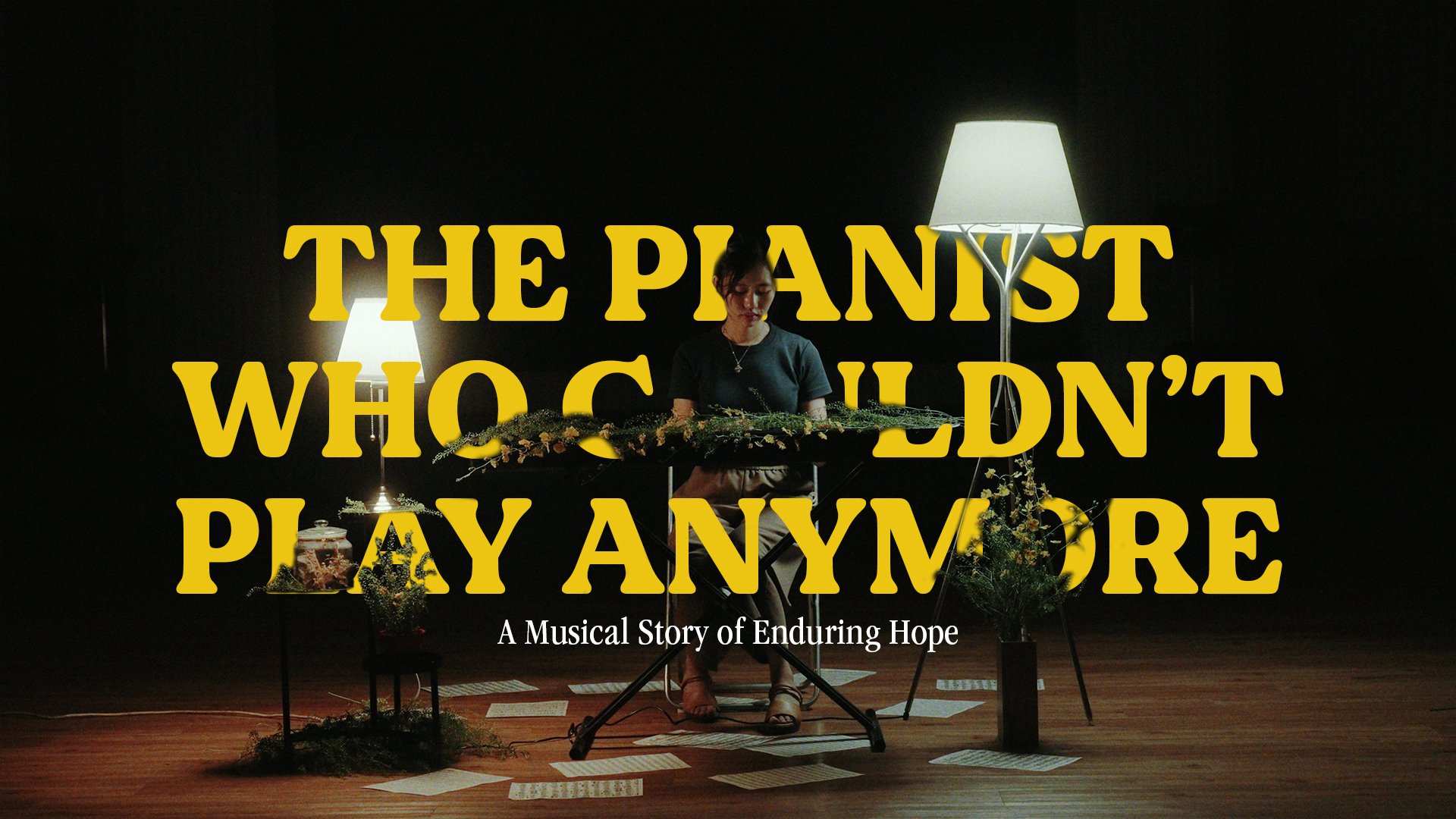Born with retinal dystrophy, Stephanie plays the erhu with The Purple Symphony, which comprises musicians with and without special needs, and the Singapore National Youth Chinese Orchestra, where she is the only person with special needs. This is our first story written by a person with visual impairment.
I have been blind since birth. At infancy, I was diagnosed with retinal dystrophy, which means that by the age of 5, I was almost completely blind. I can only perceive light, which means I live mostly in darkness and shadows.
Around the time that I was losing whatever little sight I had, my mother left me in the care of my father’s sister and her husband. They never heard from her again. My father, an odd job labourer, would visit once in a while, but we barely talked. Over the years, we grew very distant.
My aunty and uncle treated me like their own instead of a stranger who suddenly appeared in their home. They even brought me to various specialists, hoping to find out if anything could be done to help me see again.
However, the answer we always got was: “There is nothing we can do. We will have to wait for future research to discover something that will cure her condition.” And my aunty and uncle will be disappointed, even though it really wasn’t a big deal for me. It still isn’t now.
Yet, they never stopped hoping. They still tell me, “You know, if only your vision gets better, you will be much better at whatever you want.”
I have been so blessed to have them in my life, which is why I worshipped whatever they worshipped, and believed whatever they believed.
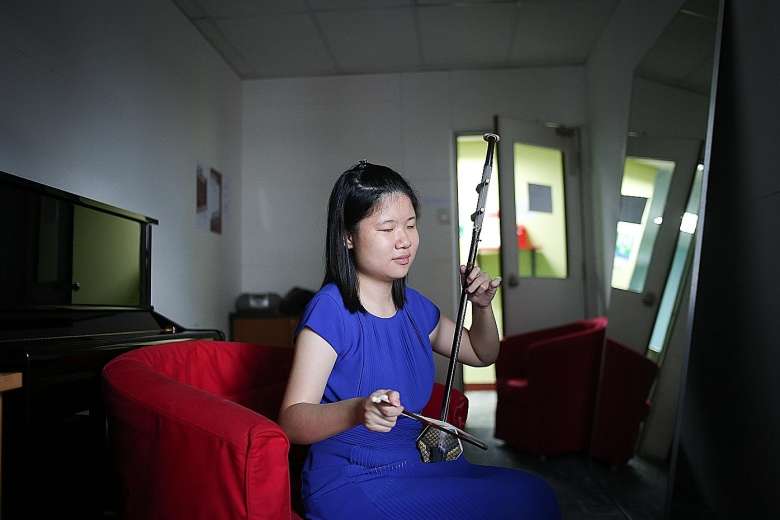
To me, at that time, God was a distant being who watched over us, rewarding those who did good things and punishing those who were evil. The statues on my family altar and those in the temples were what I knew as gods.
I had Christian friends who told me about Jesus, although I didn’t bother to find out more. But that changed when one of my teachers, a kind and loving woman, shared the Gospel with me. It was then that something clicked within me, a feeling I cannot describe even until now.
It was like a sense of direction given to me, a guide for my life ahead. I wanted so badly to go to church with her, but my family believed it was an “ang moh” religion. We were Chinese, so we should worship Chinese gods!
But I remember thinking to myself – if the Christian God is an all-loving, supreme deity and He alone is God, shouldn’t we all give Him our reverence, regardless of our ethnicity? And if He sacrificed His only Son to save the whole human race from eternal separation from Him, shouldn’t we turn back to Him?
So I decided to persist in my faith. I read the Bible in braille and listened to sermons in my bedroom. My family wasn’t averse to my exploration of this faith as they felt it was good for me to learn about other religions, but they hoped that I would stay true to our Chinese beliefs.
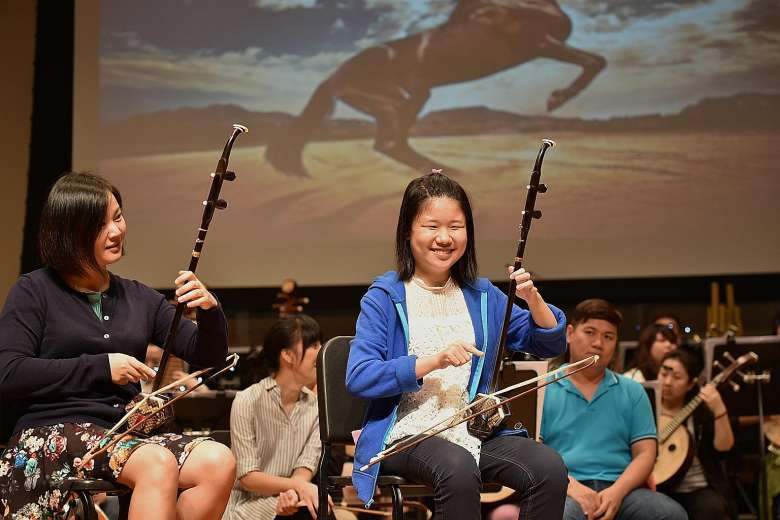
But at age 14, I accepted Jesus Christ as my personal Lord and Saviour. This was the same year that I started going for music lessons.
My uncle always loved traditional Chinese music, so I began with the erhu, a two-stringed fiddle. At first, I wasn’t too happy with this, as I’d always thought this was played at Chinese operas for the elderly. I wanted to learn the guitar or violin instead.
As it turns out, the erhu wasn’t as outdated as I thought. In fact, the pieces I was learning to play were written by musicians in the 20th Century who were trained in western music, but had a passion to write for Chinese instruments. And they did not write for operas.
Interestingly, their music reflected the struggles of native Chinese before the 1949 liberation, and their aspirations for a better future. Within a year of lessons, and with the encouragement of my first music teacher, I sat for an exam and scored a distinction!
This motivated me to keep getting better, and soon I was receiving invitations from various organisations to perform at their fundraising events from time to time. At 17, I had the privilege of performing with the Singapore Chinese Orchestra (SCO), and the next year I joined their youth wing.
Being part of the Singapore Youth Chinese Orchestra (SYCO) gave me the opportunity to be tutored by one of the musicians in the SCO, and by age 19, I had also joined the Purple Symphony, Singapore’s largest inclusive orchestra consisting musicians with and without disabilities.
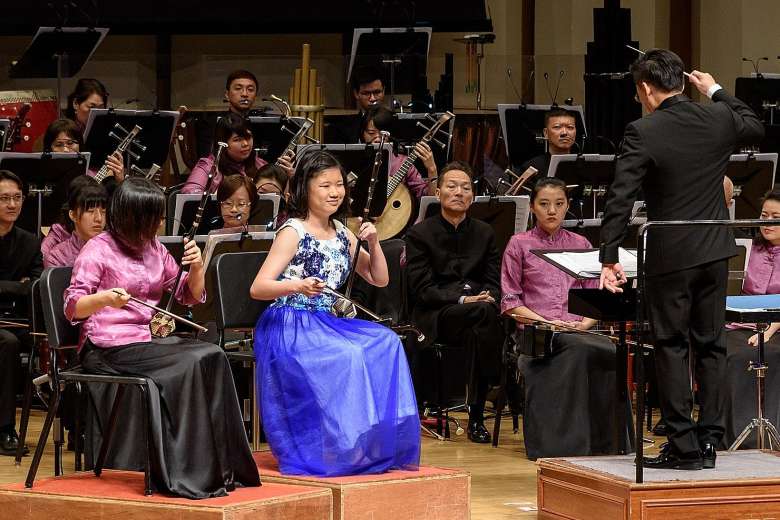
At this time, Deutsche Bank awarded me with a scholarship to study music, which would have been impossible without their help. It was a real blessing from God and a dream come true, as it had always been my goal to be a full-time musician who could teach the visually impaired to read scores in braille.
In the whirlwind of these happenings, I drifted away from God slowly. I stopped praying, reading the Bible and listening to sermons. Instead, I began to obsess with my current ideals and goals. I felt like I was the master of my own destiny. Whenever I ran into trouble, it was my friends I turned to for advice.
Wasn’t it enough to acknowledge that God exists and that Jesus is the only way to Him?
It took a long while – 4 years to be exact – for me to realise I was becoming more of a lost soul than I was before I became a Christian. It was as though I was holding the Word of God in one hand, and the world in the other.
Fortunately, a senior in the music institution I’m studying at reached out to me. Her father is a preacher, and she introduced me to a phone app that had sermons and hymns for me to listen to. She also invited me to Bible study with other students, where her father would teach us.
Through their mentoring, my understanding of Scriptures and my Heavenly Father became much clearer. I learnt how to put all my hope and trust in the Lord, even though there were times where I had so many questions.
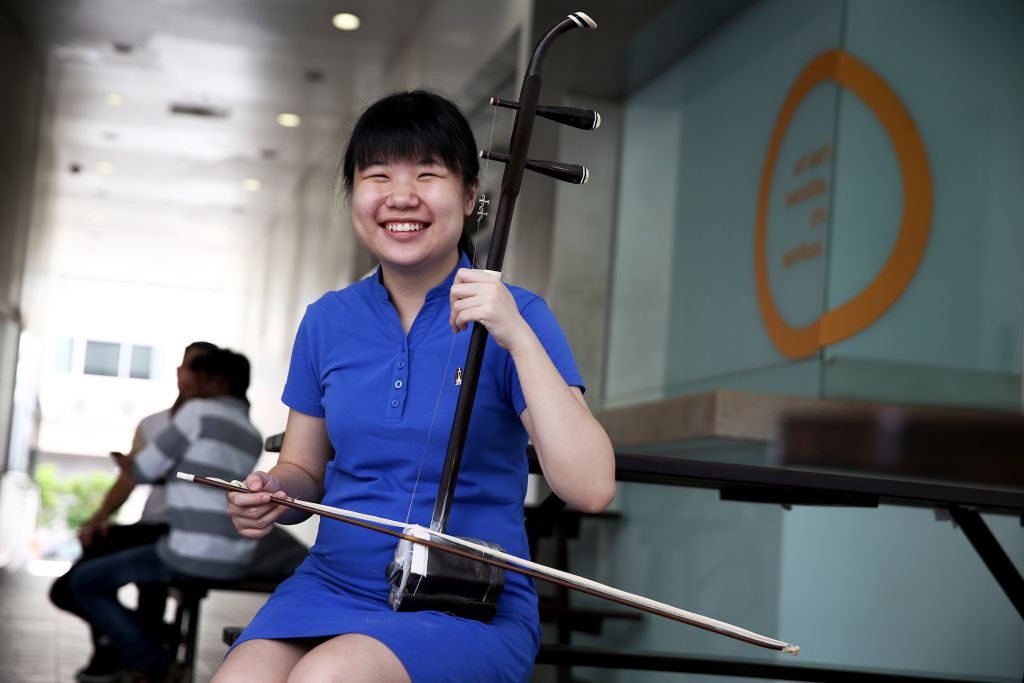
But I would be lying if I said I did not envy other children who had their biological parents with them. I always knew this was something I’d never have in life. But it took a lot out of me to accept that fully.
On some days my mood got very bad; I felt like the whole world was against me. I had no appetite and just wanted to be alone. There were nights I cried myself to sleep as I prayed. But one day, as I was deep in thought, the words of Isaiah 55:8-9 surfaced in my mind.
“For my thoughts are not your thoughts, neither are your ways my ways, says the Lord. For as the heavens are higher than the earth, so are my ways higher than your ways, and my thoughts than your thoughts.” (Isaiah 55:8-9)
A sense of peace, hope and joy surrounded me all of a sudden – it was something I’d never felt until that moment. I realised I did not need to feel sad about not having biological parents when I have a Father in Heaven who loves me in spite of all my flaws, but continues to renew me every day.
Through the difficulties of life, I have the Lord to lead me. Even as I graduate with a diploma in music in less than a year’s time and am feeling anxious about the new season of life to come, I know that He will guide me through this once again.
My family is also warming up to the idea of me being a Christian. I am praying for their salvation, and for God to lead me to a church where I can grow spiritually.
I have never seen with my own eyes, but I believe that God can heal me in His beautiful time. Of course, I might never get to see in this lifetime, but when my eyes finally open in a new and perfect body, the first person I hope to see is my Saviour Jesus Christ.
- What did you feel as you read Stephanie’s story?
- How would your life be different if you were born without sight?
- Thank God for the gift of sight; ask Him to let you see His world in a brand new way.


